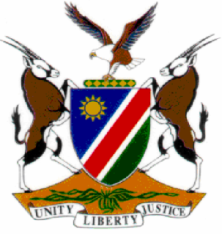
CASE NO.: CC 32/2001
NOT REPORTABLE
IN THE HIGH COURT OF NAMIBIA
HELD AT WINDHOEK
In the matter between:
THE STATE
and
CALVIN LISELI MALUMO & 111 OTHERS
CORAM: HOFF, J
Heard on: 17 November 2011
Delivered on: 21 November 2011
JUDGMENT
HOFF, J: [1] The objection raised by Mr Kauta was to the effect that the present witness, police officer cannot take the stand and say under oath what he was told by a previous witness, since that would be to rely on a previous consistent statement.
[2] It was also submitted that to ask the witness presently in the witness box to state what the previous witness had said to him would be self corroboration. And if I understood the submission of Mr Kauta correctly, in addition it was admitted that if the police officer testifies about what the previous witness did not say, the State is in effect impeaching its own witness.
[3] Then in this regard the Court was referred to the provisions of Section 204(1) of the Criminal Procedure Act, Act 51 or 1997. What I understand of the issue of self corroboration is that evidence cannot be led in support of proof that a witness is repeating something which he/she has said on an earlier occasion. It has no value since a lie may just as well be repeated as the truth.
[4] The exceptions referred to are not applicable in this matter. The police officer, his evidence cannot be said to be self corroboration of another witness’s evidence.
[5] The Defence has cross-examination as a tool should there be any deviation or contradictions from what he has said compared to the previous witness, to use the tool of cross-examination to attack the credibility of the witness. Similarly it cannot be said that where one witness’s evidence differs from a previous witness’s evidence that the State is now impeaching its own witness.
[6] The normal ground rule is that an opposing party would attack the credibility of a witness by means of cross-examination. Then there is a general rule, that a party may not cross-examine its own witness.
[7] Section 204(1) is an exception to this general rule which provides that only the party calling a witness may impeach the credibility of that witness called on behalf of such a party.
[8] This would normally be done where the party who called the witness is left in the lurch by his own witness, and the witness would be confronted with a previous inconsistent statement. The purpose of impeaching or discrediting your own witness is to have the viva voce evidence in Court negated, or neutralised, or have the evidence regarded as pro non scripto.
[9] It should be clear under these circumstances that an opposing party cannot use the provisions of Section 204(1) as tool to object against evidence presented by the opposing party’s opposition.
[10] The Court was provided with no authority by Mr Kauta in support of these submissions. I have perused the authorities referred to but was unable to find any support for the submissions made by Mr Kauta.
[11] In the result the objection is overruled.
______________
HOFF, J
ON BEHALF OF THE STATE: MR JULY
Instructed by: OFFICE OF THE PROSECUTOR-GENERAL
ON BEHALF THE DEFENCE; MR KAUTA
Instructed by: DIRECTORATE OF LEGAL AID